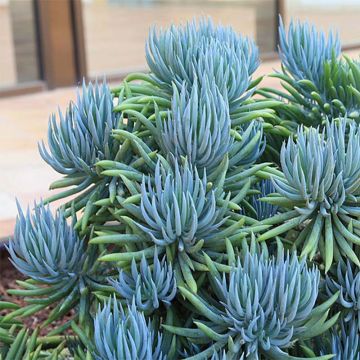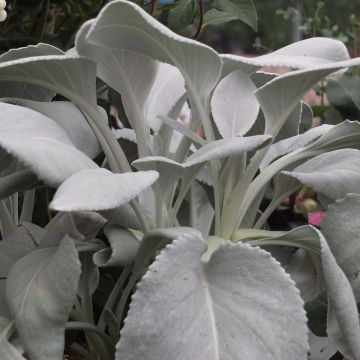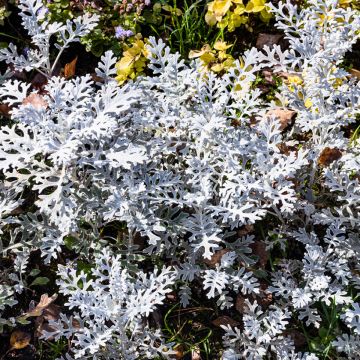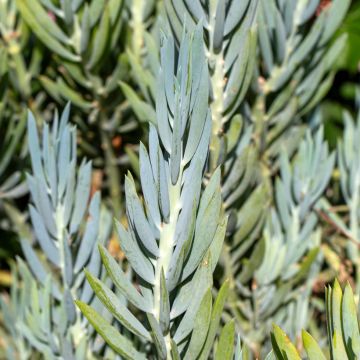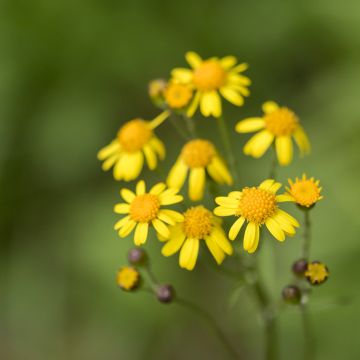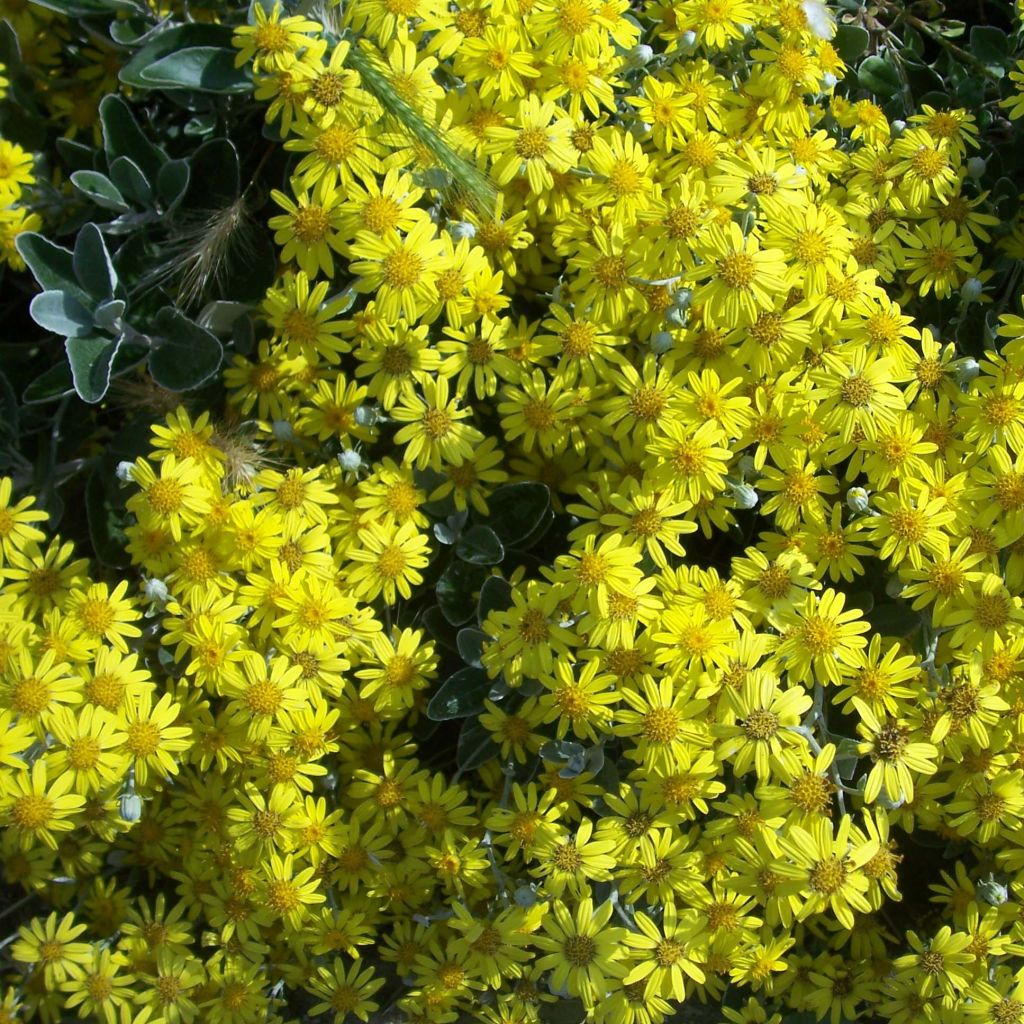

Senecio x greyi Sunshine
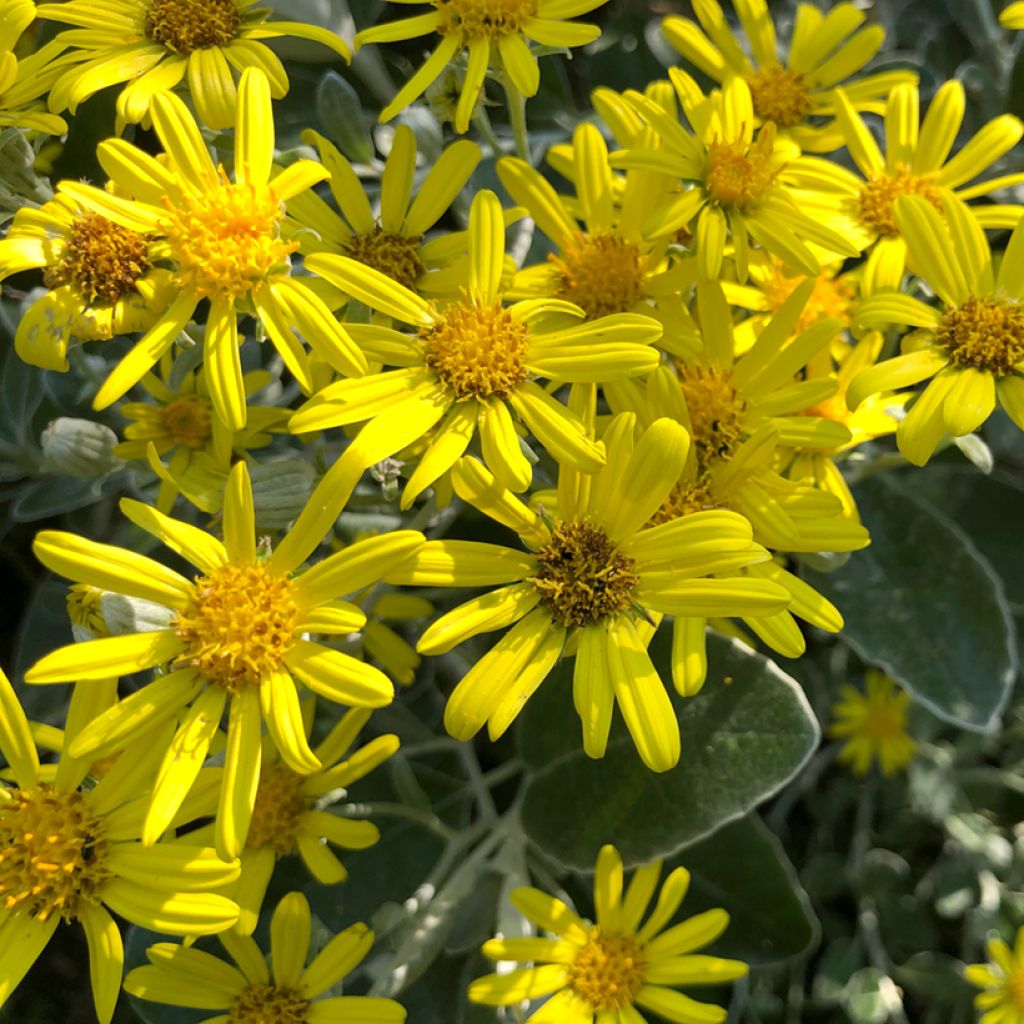

Senecio x greyi Sunshine
Senecio x greyi Sunshine
Senecio x greyi Sunshine
Daisy Bush, New Zealand Ragwort
Arrived two weeks ago in perfect health, well upright. Planted promptly, it remains just as beautiful despite the cold and rain.
Isabelle 06, 18/12/2025
Special offer!
Receive a €20 voucher for any order over €90 (excluding delivery costs, credit notes, and plastic-free options)!
1- Add your favorite plants to your cart.
2- Once you have reached €90, confirm your order (you can even choose the delivery date!).
3- As soon as your order is shipped, you will receive an email containing your voucher code, valid for 3 months (90 days).
Your voucher is unique and can only be used once, for any order with a minimum value of €20, excluding delivery costs.
Can be combined with other current offers, non-divisible and non-refundable.
Home or relay delivery (depending on size and destination)
Schedule delivery date,
and select date in basket
This plant carries a 24 months recovery warranty
More information
We guarantee the quality of our plants for a full growing cycle, and will replace at our expense any plant that fails to recover under normal climatic and planting conditions.


Would this plant suit my garden?
Set up your Plantfit profile →
Description
Senecio greyi Sunshine or Brachyglottis, also known as Tree Senecio, is primarily admired for its bushy habit, dense foliage, and beautiful silvery-green leaves, which give it a silver ball-like appearance, even in winter, under pale sunlight, in a flowerless and colourless setting. As pleasing to the eye as it is to the touch, it also offers charming summer flowering in golden-yellow, in the form of small daisies. Brachyglottis, formerly classified as Senecio, are all native to New Zealand. They are small, endearing shrubs, resistant to salt spray and drought, not demanding of well-drained soil, and hardy down to -12/-15 °C. They are easy to cultivate in large pots, in well-drained soil.
Senecio greyi is a shrubby plant in the Asteraceae family, superseded in horticulture by its hybrids, known as Dunedin hybrids, among which Sunshine is undoubtedly the most widely planted in gardens. Native to New Zealand, the species grows on cliffs and rocky outcrops, from the coast to the inland river gorges, in the south of the North Island.
Eventually forming a branching, bushy shrub, with a slightly spreading habit, reaching about 1.5 m (4 ft 11 in) in all directions, this Senecio Sunshine will need regular pruning to prevent its base from becoming bare, especially in fertile and moist soil. The growth of this plant occurs at a regular, rather rapid pace, triggered by rains, mainly in late summer and spring in mild climates. The branches bear entire, ovate leaves, 10 cm (3.9 in) long. They are dark green on the upper surface, whiter underneath, and completely covered in white hairs. Each leaf is surrounded by a white border. Leafy flower stalks, branched at the base and at their ends, rise among the foliage, bearing small 2.5 cm (1 in) head-like inflorescences in a very bright yellow, carried in loose clusters.
Senecio Sunshine is a plant suited to maritime climates and dry soil. It is relatively hardy if care is taken to plant it in well-drained soil and in a sheltered location. It naturally blends in, in a dry garden or on a large rockery, with Mediterranean plants such as lavenders, rosemary, Helychrisum italicum, Cistus or Convolvulus cneorum. To make it stand out in a border, away from other grey or silver foliage that could overshadow it, it can also be mixed with purple foliage like that of Loropetalum Fire Dance or Pittosporum Tom Thumb. The bright pink or red flowers of shrubby salvias (Salvia greigii, Salvia Royal Bumble) are perfectly complemented, from spring to late autumn, by all grey foliage.
Report an error about the product description
Senecio x greyi Sunshine in pictures


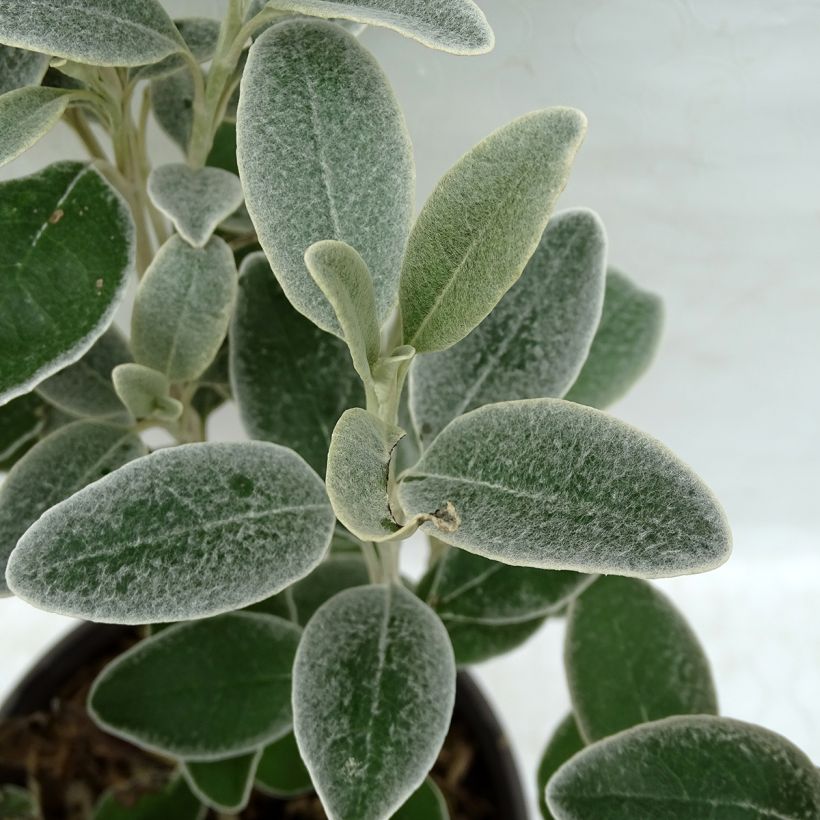

Plant habit
Flowering
Foliage
Botanical data
Senecio
x greyi
Sunshine
Asteraceae
Daisy Bush, New Zealand Ragwort
Oceania
Other Senecio
View all →Planting and care
Plant Senecio Sunshine in spring, after the last frost in cold regions, preferably in autumn in dry and hot climates. It can be planted directly in the ground in mild to moderate climates, or in a large pot anywhere else. Plant it in well-drained soil, possibly mixing coarse sand, gravel, and pumice with your garden soil. Choose a sheltered, warm, and sunny location. Some generous watering in summer, in dry and hot climates, will help young plants to become established. Once well established, this Senecio will be satisfied with rainwater, even if the summer is hot and dry. Originally from New Zealand, it completely tolerates sea spray.
Pruning: this is necessary to maintain a dense and bushy habit and beautiful foliage, especially in fertile and moist soil: remove faded inflorescences, going deep into the clump, down to the division from which new leafy stems emerge.
Propagation: very easy by taking cuttings of stems with a few leaves, in spring.
Planting period
Intended location
Care
-
, onOrder confirmed
Reply from on Promesse de fleurs
Haven't found what you were looking for?
Hardiness is the lowest winter temperature a plant can endure without suffering serious damage or even dying. However, hardiness is affected by location (a sheltered area, such as a patio), protection (winter cover) and soil type (hardiness is improved by well-drained soil).

Photo Sharing Terms & Conditions
In order to encourage gardeners to interact and share their experiences, Promesse de fleurs offers various media enabling content to be uploaded onto its Site - in particular via the ‘Photo sharing’ module.
The User agrees to refrain from:
- Posting any content that is illegal, prejudicial, insulting, racist, inciteful to hatred, revisionist, contrary to public decency, that infringes on privacy or on the privacy rights of third parties, in particular the publicity rights of persons and goods, intellectual property rights, or the right to privacy.
- Submitting content on behalf of a third party;
- Impersonate the identity of a third party and/or publish any personal information about a third party;
In general, the User undertakes to refrain from any unethical behaviour.
All Content (in particular text, comments, files, images, photos, videos, creative works, etc.), which may be subject to property or intellectual property rights, image or other private rights, shall remain the property of the User, subject to the limited rights granted by the terms of the licence granted by Promesse de fleurs as stated below. Users are at liberty to publish or not to publish such Content on the Site, notably via the ‘Photo Sharing’ facility, and accept that this Content shall be made public and freely accessible, notably on the Internet.
Users further acknowledge, undertake to have ,and guarantee that they hold all necessary rights and permissions to publish such material on the Site, in particular with regard to the legislation in force pertaining to any privacy, property, intellectual property, image, or contractual rights, or rights of any other nature. By publishing such Content on the Site, Users acknowledge accepting full liability as publishers of the Content within the meaning of the law, and grant Promesse de fleurs, free of charge, an inclusive, worldwide licence for the said Content for the entire duration of its publication, including all reproduction, representation, up/downloading, displaying, performing, transmission, and storage rights.
Users also grant permission for their name to be linked to the Content and accept that this link may not always be made available.
By engaging in posting material, Users consent to their Content becoming automatically accessible on the Internet, in particular on other sites and/or blogs and/or web pages of the Promesse de fleurs site, including in particular social pages and the Promesse de fleurs catalogue.
Users may secure the removal of entrusted content free of charge by issuing a simple request via our contact form.
The flowering period indicated on our website applies to countries and regions located in USDA zone 8 (France, the United Kingdom, Ireland, the Netherlands, etc.)
It will vary according to where you live:
- In zones 9 to 10 (Italy, Spain, Greece, etc.), flowering will occur about 2 to 4 weeks earlier.
- In zones 6 to 7 (Germany, Poland, Slovenia, and lower mountainous regions), flowering will be delayed by 2 to 3 weeks.
- In zone 5 (Central Europe, Scandinavia), blooming will be delayed by 3 to 5 weeks.
In temperate climates, pruning of spring-flowering shrubs (forsythia, spireas, etc.) should be done just after flowering.
Pruning of summer-flowering shrubs (Indian Lilac, Perovskia, etc.) can be done in winter or spring.
In cold regions as well as with frost-sensitive plants, avoid pruning too early when severe frosts may still occur.
The planting period indicated on our website applies to countries and regions located in USDA zone 8 (France, United Kingdom, Ireland, Netherlands).
It will vary according to where you live:
- In Mediterranean zones (Marseille, Madrid, Milan, etc.), autumn and winter are the best planting periods.
- In continental zones (Strasbourg, Munich, Vienna, etc.), delay planting by 2 to 3 weeks in spring and bring it forward by 2 to 4 weeks in autumn.
- In mountainous regions (the Alps, Pyrenees, Carpathians, etc.), it is best to plant in late spring (May-June) or late summer (August-September).
The harvesting period indicated on our website applies to countries and regions in USDA zone 8 (France, England, Ireland, the Netherlands).
In colder areas (Scandinavia, Poland, Austria...) fruit and vegetable harvests are likely to be delayed by 3-4 weeks.
In warmer areas (Italy, Spain, Greece, etc.), harvesting will probably take place earlier, depending on weather conditions.
The sowing periods indicated on our website apply to countries and regions within USDA Zone 8 (France, UK, Ireland, Netherlands).
In colder areas (Scandinavia, Poland, Austria...), delay any outdoor sowing by 3-4 weeks, or sow under glass.
In warmer climes (Italy, Spain, Greece, etc.), bring outdoor sowing forward by a few weeks.






























